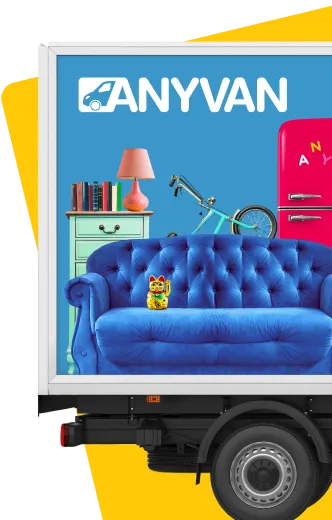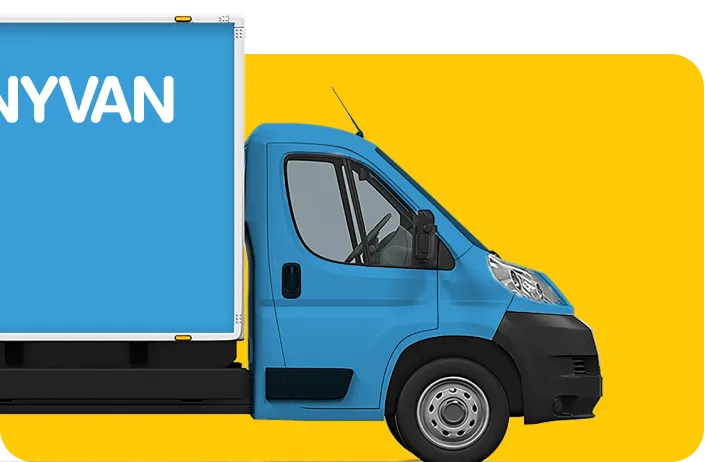Removals to Spain
Get a quote now from a trusted removal company to Spain

Get a quote now from a trusted removal company to Spain


Thinking about swapping grey skies for golden beaches? Our expert removal company to Spain makes moving stress-free:
You could save up to 40% with us on your UK-to-Spain move with access to thousands of removal teams.
We partner with the best in the business, working with top-rated teams who specialise in home removals to Spain.
Because we work with more international teams than anyone else, we can help you move on almost any date. Just say when!

With AnyVan the removal costs of UK to Spain moves up to 40% cheaper without skimping on service.
The price of your international removals to Spain depends on a few things – how far you're going, how much stuff you’re bringing (yes, even the garden gnome), how many hands you’ll need, and your moving date. We also factor in the nitty-gritty – ferry fees, tolls, and the logistics of shipping furniture to Spain.
A full home removal to Spain (say, a three-bed house) will naturally cost more than just shipping furniture to Spain, so if you're downsizing, you could save even more. Ready to pack up and say "¡Vamos!"? Get your quote today!

Moving home is a big moment, and relocating to Spain is even bigger. That’s why one of our dedicated moving specialists will be with you throughout the process. We also handle customs clearance and paperwork, so you don’t have to worry about the details. It's as easy as 1-2-3!
Fill out our online form with the items you want to move, where they need to go, and select your move date.
Review quotes from specialist international removal companies and choose the one that fits your needs best.
We’ll make sure you have all the info you need for a smooth ride on moving day! Our customer service team is also on hand to support 7 days a week.

Planning a move to Spain isn’t always straightforward. Whether you're downsizing, waiting on a property sale, or exploring your new surroundings before settling in, our secure storage options offer the perfect solution. With over 100 high-security facilities across the UK, we make Spanish removals simple and flexible.
From collection to storage and redelivery, we handle it all to save you time, money, and the hassle.

AnyVan connects you with over 5,000 trusted transport partners across Europe. Whether you're relocating from Manchester to Madrid or Bristol to Barcelona, we’ve got the route and expertise to make it happen.
We specialise in international removals to Spain, France, Germany, and other top destinations. Our extensive network ensures flexible, reliable service designed to take the stress out of your move abroad.
Your European relocation starts with a team that knows how to get you there, efficiently, safely, and affordably.

Home removals
Moving home within the UK? AnyVan is the UK’s favourite removals company. So if you’re after an easy and affordable flat or house removal service then you’re in the right place.
Discover home removals
Vehicle transport
We provide safe and reliable vehicle transport services to your new Spanish home. Whether it's a car, motorcycle, or even a van, our expert teams will move it for you.
Discover vehicle delivery
Man and van services
Find a local man and van near you to move any item of furniture or even a small home. We’ll make sure it’s low-cost, low-stress and, yes, carbon-neutral!
Discover man and van servicesAlex is one of AnyVan's moving experts, helping hundreds of people relocate. He's happy to answer some of your commonly asked questions on moving to Spain:
